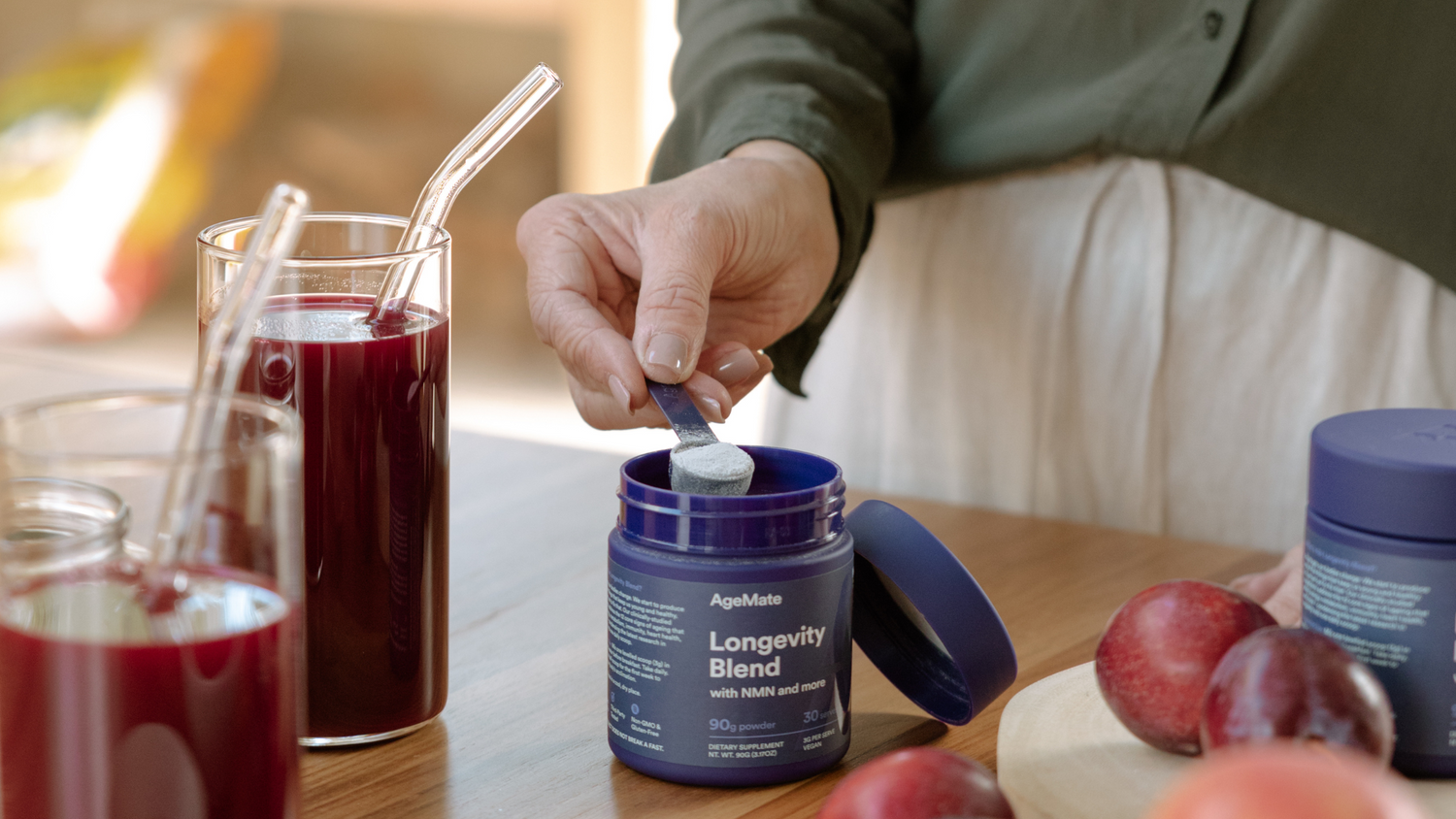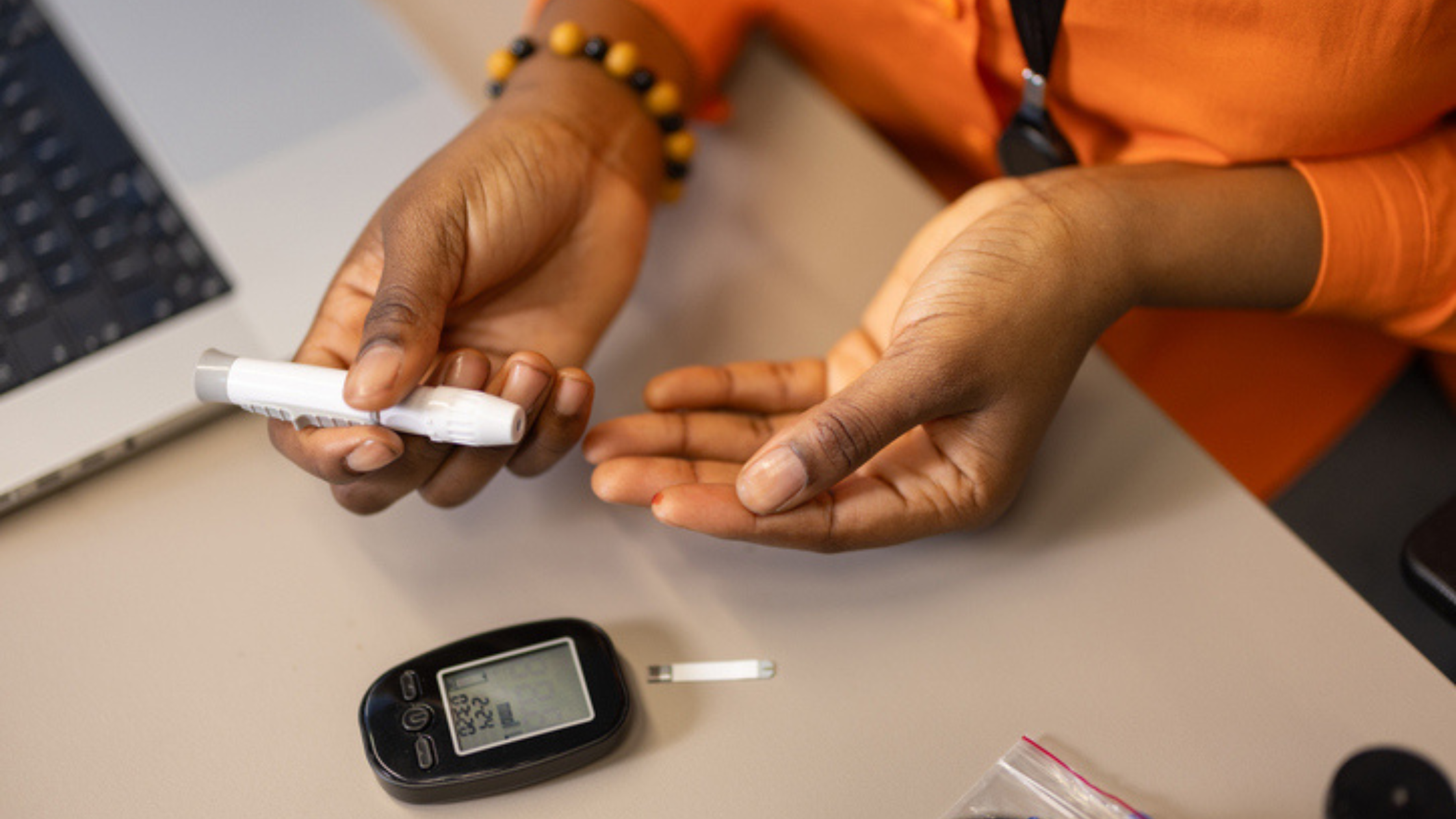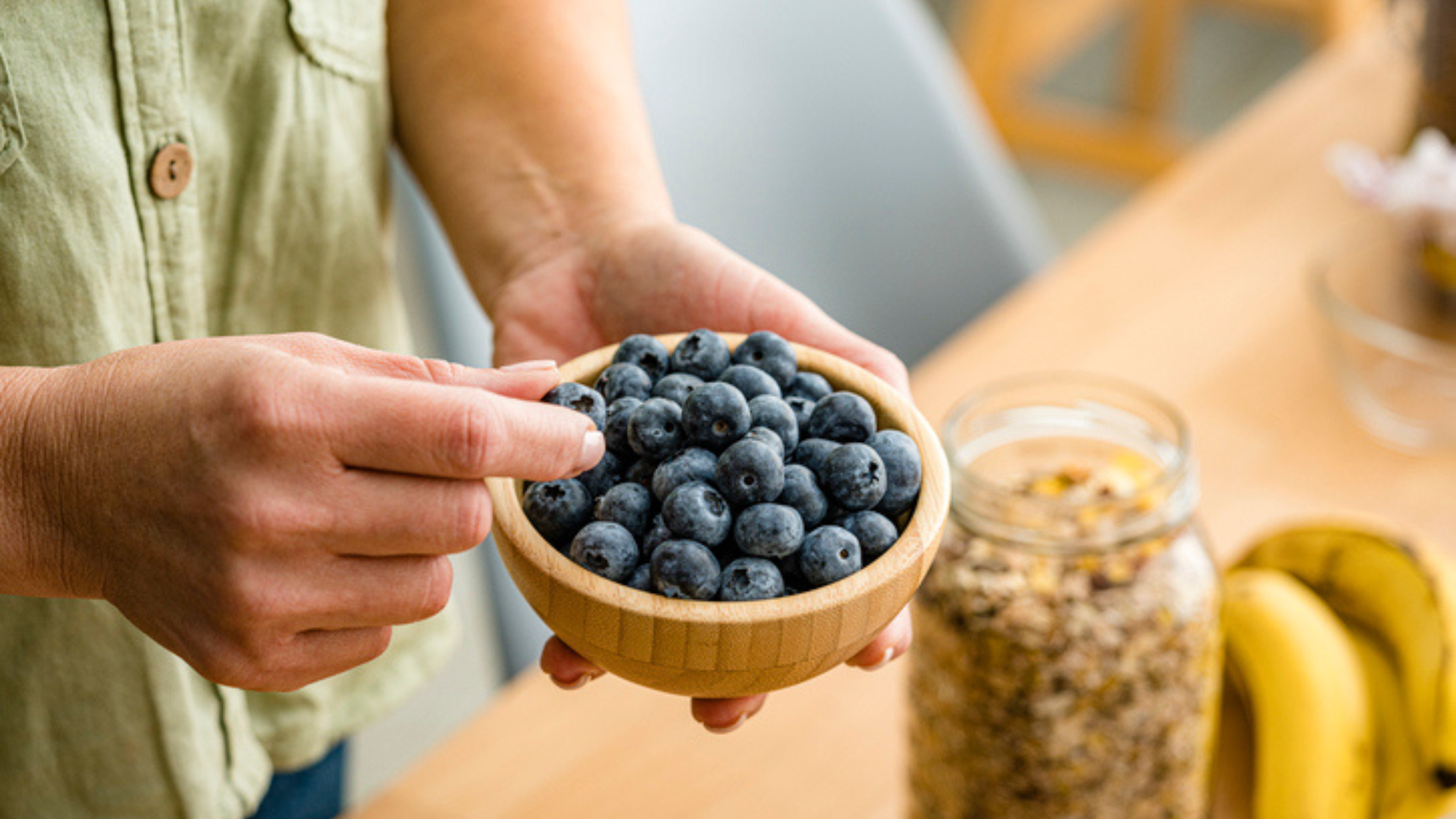Key Takeaways:
- Staying young naturally involves a mix of lifestyle choices, including good nutrition, physical activity, and stress management.
- Science-backed supplements, such as NMN and spermidine, can support longevity and slow the ageing process.
- Maintaining social connections and practising acts of kindness contribute significantly to mental and physical vitality as you age.
Did you know that the longest recorded human lifespan belongs to Jeanne Calment, who lived to 122 years and 164 days? While genetics played a role, Jeanne's longevity was also attributed to her active lifestyle, positive outlook, and love of olive oil. So, what can we learn from her? In this blog, we will dive into the science of ageing and uncover practical ways you can stay younger for longer.
1. The Role of Nutrition in Staying Young
What you eat profoundly impacts how you age. Nutrition provides the building blocks your body needs to maintain its vitality and slow down the ageing process.
Key Nutrients to Support Youthful Ageing
Eating a variety of colourful fruits, vegetables, whole grains, and lean proteins ensures your body gets the vitamins, minerals, and antioxidants necessary to fight oxidative stress—one of the major contributors to ageing. Antioxidants like vitamins C and E neutralise free radicals, which cause cellular damage over time (R).
Healthy fats, such as omega-3 fatty acids found in fish and flaxseed, can help reduce inflammation, which is linked to many age-related conditions, including heart disease and cognitive decline (R).
The Benefits of Caloric Restriction
One lesser-known but impactful approach to longevity is caloric restriction—reducing your overall caloric intake without malnutrition. Studies show that caloric restriction can increase lifespan by lowering metabolic rates and reducing oxidative stress (R, R). Incorporating intermittent fasting, for example, might be a sustainable way to practise this, allowing the body time to repair and regenerate.

2. The Science of Supplements for Longevity
Supplements can be a powerful addition to your longevity strategy, working at the cellular level to slow down ageing processes. While no pill is a magic bullet, several supplements have shown promise in supporting healthy ageing.
Spermidine and NMN: Cellular Support
Spermidine is a naturally occurring compound that induces autophagy, the body’s process of cleaning out damaged cells and regenerating new ones. This cellular clean-up can delay age-related diseases and maintain youthful function (R). Similarly, NMN (nicotinamide mononucleotide) supports the production of NAD+, a coenzyme involved in DNA repair and energy metabolism. NAD+ levels decline with age, so boosting them with NMN may improve longevity and vitality (R).
Resveratrol: Protecting Against Ageing
Found in red wine and grapes, resveratrol has gained attention for its anti-ageing properties. This polyphenol activates sirtuins, a family of proteins that regulate cellular health and repair (R). While moderation is key—don't rely on wine alone—resveratrol supplements offer a more concentrated source to support your anti-ageing efforts.
3. The Power of Physical Activity for Youthfulness
Staying physically active is one of the most effective ways to maintain a youthful body and mind.
Strength Training for Muscle Preservation
As we age, muscle mass naturally declines, a process known as sarcopenia. However, regular strength training can counteract this loss, helping you maintain muscle mass and strength well into your later years. Lifting weights or engaging in resistance exercises at least twice a week can improve not only your physique but also your metabolic rate and bone density (R, R).
Aerobic Exercise for Heart and Brain Health
Aerobic activities like walking, swimming, or cycling improve cardiovascular health, which is essential for maintaining energy levels and reducing the risk of chronic diseases. Studies show that regular aerobic exercise also supports brain function, reducing the risk of dementia and cognitive decline (R).

4. Stress Management: Protect Your Mind and Body
Chronic stress accelerates ageing by increasing the production of cortisol, a hormone that weakens your immune system and leads to inflammation. Finding ways to manage stress is essential for maintaining youthfulness.
Mindfulness and Meditation
Incorporating mindfulness practices, such as meditation or yoga, into your daily routine can reduce stress levels and promote a calm, youthful mind. Studies have shown that meditation can actually preserve the length of telomeres, the protective caps on our chromosomes that shorten as we age, thus slowing the ageing process (R).
Sleep: Nature's Anti-Ageing Remedy
Good quality sleep is one of the most underrated tools in your anti-ageing toolkit. Sleep allows your body to repair itself, consolidate memories, and regulate hormones like growth hormone and melatonin, both of which decline with age (R, R). Aim for seven to nine hours of sleep per night to support overall health and vitality.
5. Staying Connected: The Social Aspect of Ageing
Humans are social beings, and staying connected can profoundly affect your longevity.
The Power of Social Bonds
Research shows that strong social connections not only improve mental health but can also increase lifespan. People with close social ties tend to have lower rates of heart disease, mental decline, and chronic illness (R). Whether through family, friends, or community groups, maintaining relationships keeps you mentally sharp and physically active.
Acts of Kindness for Longevity
Did you know that simple acts of kindness can boost your longevity? Engaging in altruistic activities has been shown to reduce stress and enhance emotional wellbeing. Whether it’s volunteering, helping a neighbour, or simply offering a smile, these small acts contribute to a longer, healthier life (R).

6. Environmental Factors: The Impact of Your Surroundings
Your environment plays a key role in how well you age. Clean air, water, and toxin-free surroundings all contribute to youthful ageing.
Air Quality and Longevity
Poor air quality has been linked to a host of ageing-related diseases, particularly respiratory and cardiovascular conditions. If you live in an urban area, investing in air purifiers and spending time in nature can significantly reduce your exposure to pollutants, helping you breathe easier and live longer (R).
Conclusion
While there's no single secret to staying young, adopting a balanced lifestyle that includes nutrient-rich foods, physical activity, stress management, and supplements like NMN, spermidine, and resveratrol can make a profound difference. Staying connected with loved ones, maintaining a sense of purpose, and protecting your environment are equally important for healthy ageing.
If you're looking for an easy way to support your longevity journey, consider trying The Longevity Blend. Packed with science-backed ingredients like NMN and spermidine, it’s a simple step towards a healthier, more youthful future.





